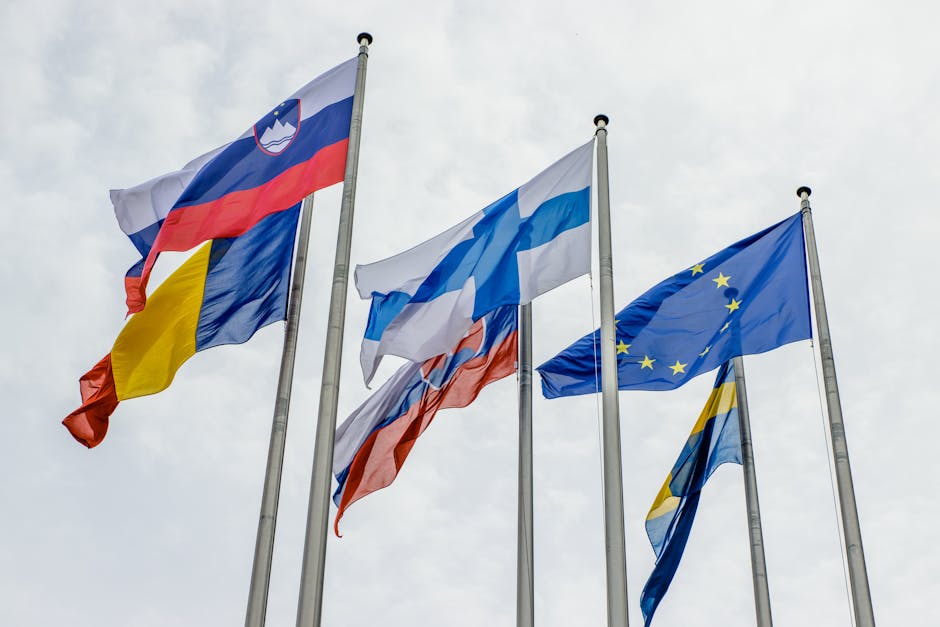The intricate web of interconnectedness that defines our modern world, while offering opportunities for collaboration, is increasingly strained by the rise of political fragmentation. Nationalistic tendencies, the erosion of international cooperation, and the proliferation of competing ideologies are contributing to a complex and often unstable global environment. This article examines the profound impact of political fragmentation on addressing critical global issues, arguing that this fractured landscape exacerbates existing problems and creates new ones.
A hallmark of the contemporary global stage is the growing divergence of political viewpoints and approaches. This fragmentation manifests in various ways, from the rise of populist movements challenging established political systems to the resurgence of nationalist sentiments prioritizing national interests above global ones. Furthermore, the decline of multilateral institutions and the increase in bilateral agreements reflect this tendency towards isolationism. These trends are particularly concerning when confronting challenges demanding coordinated global action.
Consider the challenge of climate change. The success of mitigating climate change hinges on international agreements and concerted efforts to transition towards renewable energy sources. Fragmented political landscapes often obstruct this progress. Nations prioritizing short-term economic gains over long-term environmental sustainability may be less inclined to participate in global initiatives, hindering the collective response needed. The resulting inaction leads to an amplification of the problem, as the consequences of delayed action become increasingly severe. Furthermore, the lack of a unified front often exacerbates disputes over responsibility and burden-sharing, potentially leading to inaction.
Similar dynamics are evident in the realm of global health crises. The COVID-19 pandemic highlighted the importance of international collaboration in developing vaccines and coordinating responses. However, political fragmentation hindered this response in some instances. Differing priorities, mistrust, and a reluctance to share data and resources hampered effective global coordination, leading to a more protracted and potentially widespread crisis. A fractured world is less resilient to pandemics, as unified strategies for prevention, control, and treatment become increasingly elusive.
Economic stability is another area profoundly impacted by political fragmentation. The interconnected nature of global markets makes economic cooperation indispensable. Nationalistic policies prioritizing domestic industries and protectionist measures disrupt global trade flows, potentially leading to economic instability and recession. These measures, driven by the desire for self-reliance, often have unintended consequences, impacting vulnerable populations and hindering the collective prosperity of the global community. Furthermore, they create an environment of uncertainty, discouraging investment and hindering long-term economic growth.
Security challenges are amplified by the erosion of international cooperation. The proliferation of armed conflicts, the rise of non-state actors, and the challenges posed by terrorism demand collective efforts. Fragmentation undermines the ability of nations to cooperate effectively, impeding the establishment of shared security frameworks and hindering the deployment of coordinated strategies. The absence of a unified front allows conflicts to escalate and transnational threats to grow, posing significant risks to regional and global stability. The perceived lack of trust and common ground among nations can hinder the identification and containment of these threats.
Furthermore, a critical aspect of political fragmentation is its impact on the efficacy of international institutions. A decrease in trust and cooperation makes the United Nations, World Trade Organization, and other organizations less effective. Reduced membership in these bodies and increased resistance to their recommendations further hamper global governance efforts. This fragmentation hinders the collective problem-solving abilities needed for addressing complex global issues.
The rise of alternative facts and the prevalence of misinformation also stem from a fractured political environment. A lack of shared understanding and objective information-sharing weakens the capacity of individuals and institutions to make sound decisions in a globalized world. The propagation of disinformation through social media platforms can exacerbate political tensions and undermine global cooperation in crucial areas like pandemic response and climate change mitigation. The resulting polarization further reinforces political fragmentation.
Addressing this challenge requires a multi-pronged approach. Re-engaging with international cooperation, focusing on shared values and common interests, and reinforcing the role of multilateral institutions are crucial steps. Promoting dialogue and fostering mutual understanding through various platforms can help bridge the gaps between different viewpoints. Ultimately, recognizing the interconnected nature of global challenges and the need for collaborative solutions is critical for navigating a fragmented world. Fostering transparency and trust through robust communication strategies is also a necessity. Enhancing international diplomacy and fostering a culture of cooperation are key to mitigating the detrimental effects of political fragmentation.
Ultimately, the intricate tapestry of global interconnectedness demands a coordinated response to shared challenges. Political fragmentation erodes the foundations of this cooperation, leading to a cascade of negative consequences. Addressing this multifaceted challenge requires a conscious effort to rebuild bridges between nations, re-establishing common ground, and reinforcing the importance of international collaboration. Only through such concerted action can the world overcome the obstacles posed by political fragmentation and work towards a more sustainable and prosperous future.






